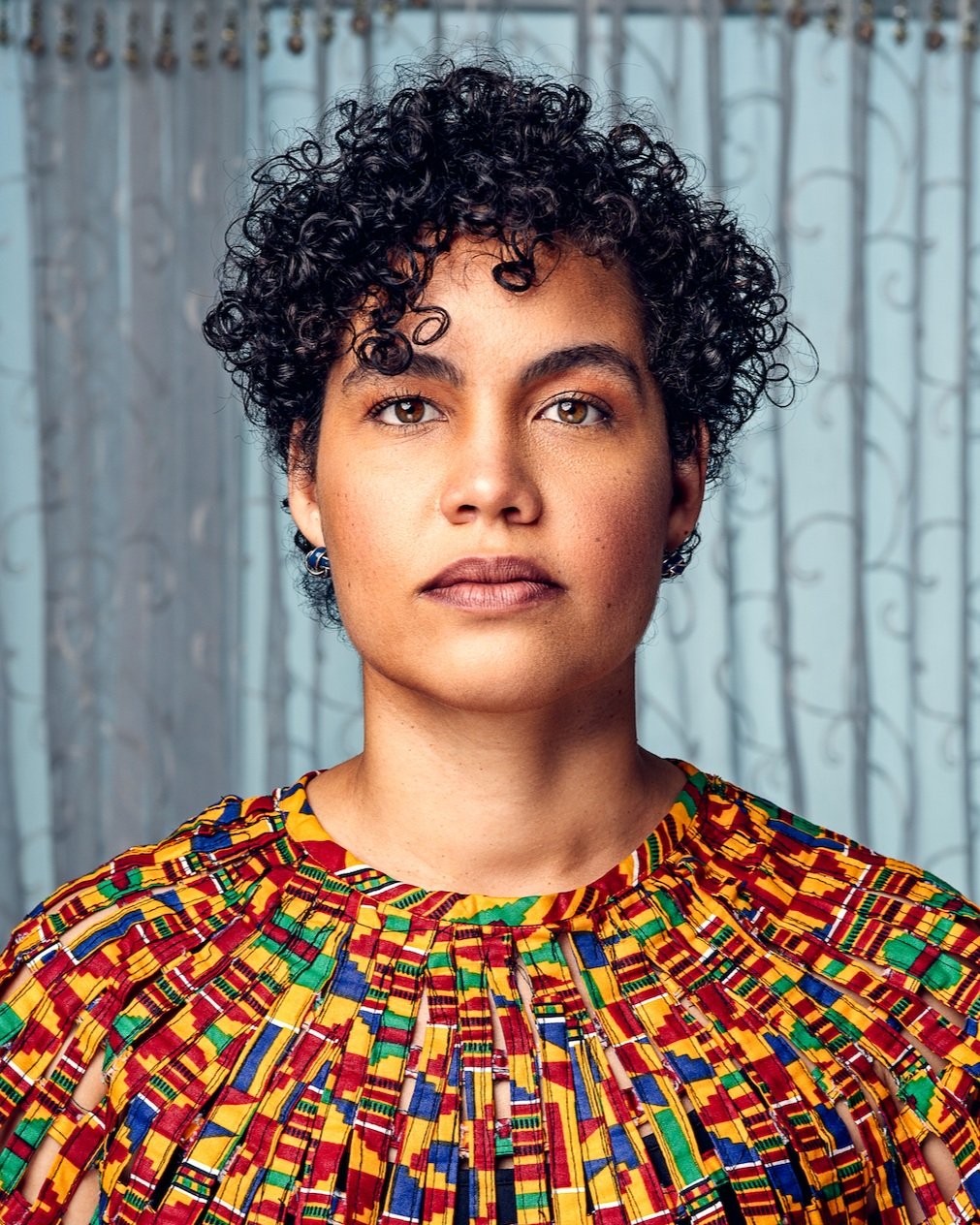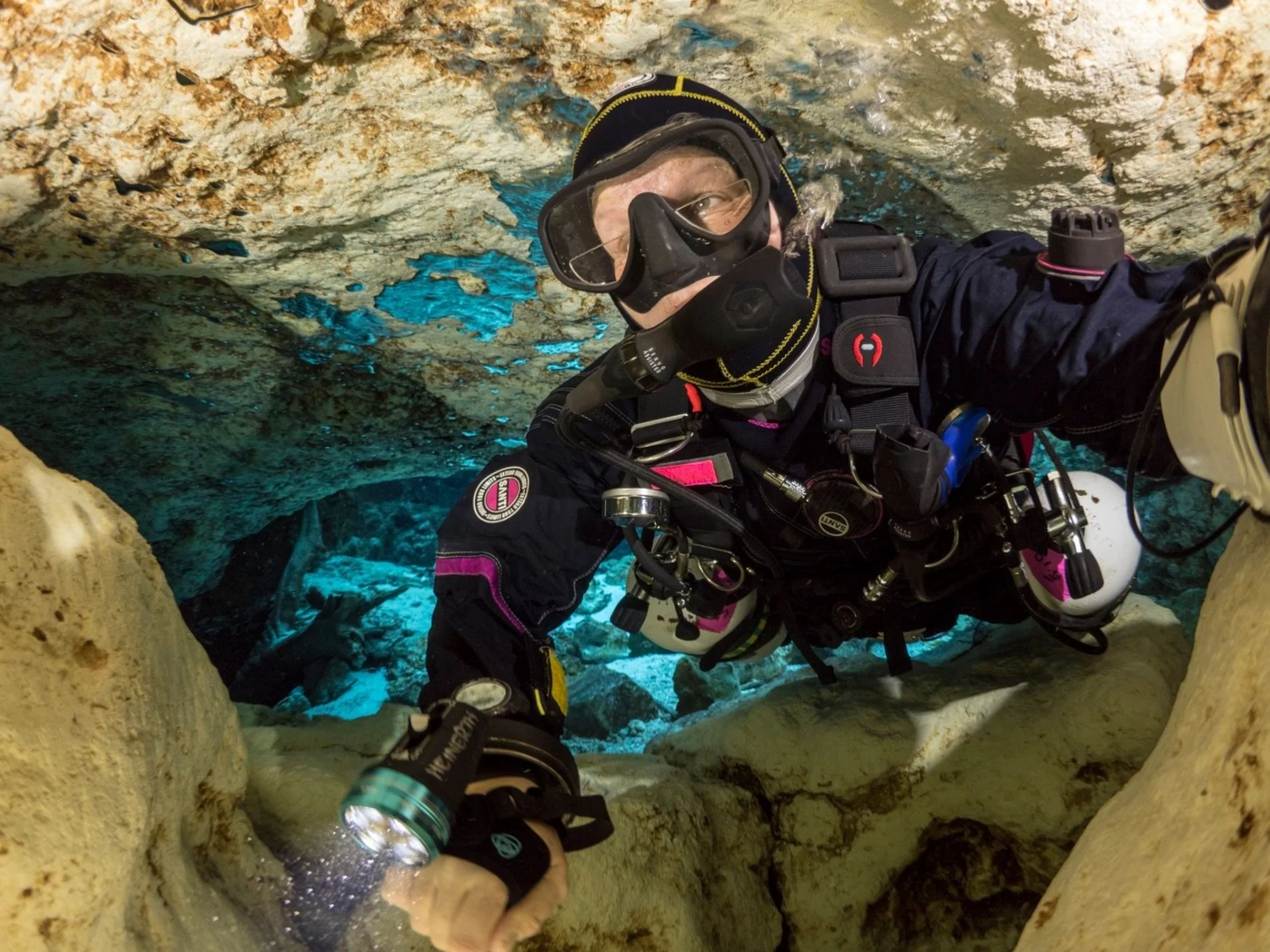2022 WOMEN OF DISCOVERY
Karletta Daané Chief, Ph.D.
DR. KARLETTA DAANÉ CHIEF (Diné) focuses on watershed hydrology, unsaturated flow in arid environments, how natural and human disturbances affect soil hydrology, and the effects of climate change on water resources and Indigenous people. An associate professor and extension specialist in the Department of Environmental Science at the University of Arizona, she works to translate university research for Native Americans in Arizona in a range of areas, including watershed hydrology, mining impacts, water policy, solar energy, culturally relevant food safety, and climate change assessment and adaptation. As director of the university’s new Indigenous Resilience Center, she collaborates with tribal leaders and governments to design community-driven solutions that address the adverse effects of environmental challenges among indigenous groups and increase Native American participation in STEM.
Karletta leads a program funded by the National Science Foundation, Indigenous Food, Energy and Water Security and Sovereignty, an innovative collaboration between UA and Diné College in the Navajo Nation that aims to develop a diverse workforce with intercultural awareness and Food-Energy-Water Security expertise to address FEWS challenges in indigenous communities, using traditional ecological knowledge and culturally sensitive science.
Karletta is originally from Black Mesa, AZ, and received a B.S. and M.S. in Civil and Environmental Engineering from Stanford University. Dr. Chief received her Ph.D. in Hydrology and Water Resources in the School of Engineering at the University of Arizona. She completed her post-doctorate at Desert Research Institute in the Division of Hydrologic Sciences in Las Vegas, NV, where she worked on large weighing lysimeters at the Scaling Environmental Processes in Heterogeneous Arid Soils (SEPHAS) Project in Boulder City. In 2011, Dr. Chief was named American Indian Science and Engineering Society (AISES) Most Promising Scientist/Scholar, 2013 Stanford University Distinguished Alumni Scholar, 2015 Native American 40 under 40, 2016 AISES Professional of the Year, 2016 Phoenix Indian Center (PIC) Woman of the Year, and 2020 American Geophysical Union Ambassador.
Adjany Costa
HON. ADJANY COSTA is a marine biologist and ethno-conservationist involved in the establishment of Angola’s first Marine Protected Area, having led the official kick-off intersectoral assemblies for its creation as a Minister to the newly created (Super-)Ministry of Culture, Tourism and Environment. She also drove the dialogue on climate action with several national and international stakeholders, promoting the creation of the country’s first climate observatory. The youngest Minister in the history of the country (she was 31 at the time), Adjany currently serves as the Advisor to the President of Angola for Environmental Affairs.
At WildCRU, the Wildlife Conservation Research Unit at the University of Oxford, Adjany is working to develop a bottom-up Community Based Natural Resource Management Model tailored to the needs, beliefs, traditions and aspirations of the local Luchaze people in the Eastern Angolan highlands. As part of the Ichthyology team with the National Geographic Okavango Wilderness Project, she worked to navigate the length of the main tributaries of the Okavango basin, registering the wildlife encountered. Her contribution led to the discovery of 24 potentially new species to science in the Angolan Highlands.
Adjany has an M.S. in Marine Biology and Biological Oceanography from Ghent University and a Ph.D. in International Wildlife Conservation Practices from the University of Oxford. Her awards include 2017 National Geographic Emerging Explorer, 2019 National Geographic Explorer of the Year (as a member of the NGOWP), 2019 UN Young Champion of the Earth for Africa, 2020 UN Most Influential People of African Descent (MIPAD), and a decoration in Angola with a Golden Medal for Civil Merit.
Jill Heinerth
JILL HEINERTH is a Canadian cave diver, underwater explorer, writer, photographer, and filmmaker. More people have walked on the moon than have been to some of the places Jill Heinerth has explored right here on earth. Jill’s expeditions include exploring and mapping some of the world’s most significant submerged caves, documenting ancient Mayan remains, and collaborating with scientists and engineers. Jill was a lead technical diver on the ground-breaking US Deep Caving Team’s project. She piloted the first 3D underwater cave mapping device - technology bound for Jupiter’s moon Europa. When the largest moving object on the planet, the B-15 iceberg, calved from Antarctica, Jill led a dive team into the labyrinth of frozen underwater caves beneath the massive iceberg’s surface, discovering a diverse, colorful ecosystem in one of the harshest environments on earth. From the desert oases of the Sahara to the cold waters of Baffin Bay, Jill Heinerth explores what lies beneath the surface, extending the reach of climatologists, archaeologists, and engineers into the depths.
Jill has made award-winning TV programs for the CBC (recently Under Thin Ice - The Nature of Things), National Geographic, and the BBC, consulted on movies for directors including James Cameron and produced independent documentary films. Over 2.5 million people have learned about climate change, water advocacy, and exploration by viewing Jill’s passionate and motivational TED Talks. A gifted storyteller, Jill is an associate editor and columnist for Canada’s DIVER Magazine and a contributor to publications as diverse as Canadian Geographic and the LA Times.
Jill gained a BFA in Visual Communications Design at York University, Canada. Her accolades include receiving the Governor General’s prestigious Polar Medal and the diving world’s highest honor from the Academy of Underwater Arts and Sciences. She was inducted into the International Scuba Divers Hall of Fame in 2020 and serves as the inaugural Explorer-in-Residence for The Royal Canadian Geographic Society. Jill is a Fellow of Women Divers Hall of Fame and the Explorers Club, which awarded her with the William Beebe Award and Stefansson medal for ocean exploration.
Citlalli Morelos-Juárez, Ph.D.
DR. CITLALLI MORELOS-JUÁREZ is a Mexican primatologist and conservation scientist working in the Ecuadorian region of the Choco rainforest – one of the last coastal rainforests in the world and a global biodiversity hotspot – to study the critically endangered brown-headed spider monkey and create platforms for community-led conservation.
As director of the Tesoro Escondido Reserve, Citlalli and her team research and help protect over 20 square kilometers of primary rainforest, the habitat of at least 7,000 species of plants and animals, a quarter of which are found nowhere else on earth, such as the Great Green Macaw, the Banded-Ground Cuckoo, the Harpy Eagle, jaguars, pumas and an incredible diversity of herpetofauna.
Citlalli also has set up a schools program as well as a parabiologist program that empowers local women to learn about sustainability for the benefit of their communities and for the forest’s delicate ecosystem. The women are trained and hired as research assistants, credited in scientific publications and supported in attending symposiums and congresses to speak about their research. Citlalli and her team team work in 10 communities in schools and high-schools with projects that allow students to improve their relationship with nature. Since 2019 they have established agro-ecological gardens, worm composts and medicinal plant gardens in each school as part of the national program TiNi (land for children and teenagers for living well). They also deliver workshops in health centres and to the general population on relevant environmental topics for the area. As a result there is growing momentum to protect one of the last remaining fragments of primary forest – against the threats of logging, hunting and indiscriminate land clearance - in a country that has one of the highest deforestation rates of South America.
Citlalli has an MRes in Biodiversity and Conservation from the University of Leeds and a Ph.D. in Biology from the University of Sussex, where she studied the conservation of the critically endangered brown-headed spider monkeys of NW Ecuador.
Rae Wynn-Grant, Ph.D.
DR. RAE WYNN-GRANT is a wildlife ecologist with an expertise in uncovering how human activity influences carnivore behavior and ecology. In particular, she focuses on the ecological and social drivers of human-carnivore conflict. Her current field system encompasses the central coast of California, where she is studying the unique ecology of carnivores in coastal zones, as well as the role of protected areas in connectivity of high-quality habitat for large carnivores.
Her previous research questions surrounded the ecological drivers of human-carnivore conflict with grizzly bears in the Northern Great Plains, black bears in the Western Great Basin, African lions in rural Kenya and Tanzania, as well as grizzly bears in the Greater Yellowstone Ecosystem.
Rae serves on the Board of Directors for NatureBridge, which connects young people to the wonder and science of the natural world and where she largely aids the organizations in their equity, inclusion, and diversity strategies.
Rae received her B.S. in Environmental Studies from Emory University, her M.S. in Environmental Studies from Yale University, and her Ph.D. in Ecology and Evolution from Columbia University. She completed a Conservation Science Research and Teaching Postdoctoral fellowship with the Center for Biodiversity and Conservation at the American Museum of Natural History. She is currently a Research Faculty member at the Bren School of Environmental Science and Management leading carnivore research on the Jack and Laura Dangermond Preserve. She maintains a Research Fellow position with National Geographic Society focusing on carnivore conservation in partnership with the American Prairie Reserve and a Visiting Scientist position at the American Museum of Natural History.










